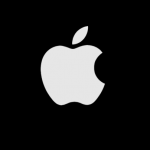
Apple is not as safe as some may think. This may come as a shock to some, given Apple’s strong brand reputation and financial position. However, history has shown that even the most dominant companies can fall from grace. The stories of Nokia and Blackberry are perfect examples of this. So what can we learn from these examples and what does it mean for the future of Apple?
Apple has always been seen as the gold standard when it comes to marketing and occupying a space in its consumer’s psyche. With its sleek designs and user-friendly interface, it’s no wonder that the company has gained a cult-like following over the years. However, recent events have shown that even the most dominant companies can fall from grace.
The stories of Nokia and Blackberry are perfect examples of this. Both companies were once dominant players in the mobile phone industry but failed to adapt to the changing market and were ultimately overtaken by competitors. It’s a cautionary tale for any company, including Apple, to take note of.
Let’s start with Nokia.
In the mid-2000s, Nokia was the world’s largest manufacturer of mobile phones. The company had a strong reputation for producing high-quality phones that were reliable and easy to use. However, as the smartphone era began, Nokia failed to adapt to the changing market. The company was slow to develop a smartphone and when it did, it was too expensive. The E71 series phone was a smart phone leader, but Nokia did not reduce the price for many years. As a result, Nokia lost market share to companies like Apple and Samsung, and by 2014, it had sold its mobile phone business to Microsoft.
The lessons from Nokia are clear. A company cannot rely solely on its reputation and past success. It must continually innovate and adapt to the changing market. In the words of Clayton Christensen, the author of “The Innovator’s Dilemma,” a company must be willing to disrupt itself before it is disrupted by others.
Now, let’s turn to Blackberry.
In the late 2000s, Blackberry was the market leader in smartphones. Its phones were considered the most secure and were the most wanted Christmas gift item. However, Blackberry failed to recognize the importance of touchscreens and app stores. The company was slow to adopt these new features and by the time it did, it was too late. Apple had already captured the market with its iPhone and App Store, and Blackberry was left behind. In 2013, Blackberry announced that it was exploring strategic alternatives, and by 2016, it had completely exited the smartphone market.
The lesson from Blackberry is clear. A company must be willing to take risks and make bold moves to stay ahead of the competition. As Yuval Noah Harari, the author of “Sapiens: A Brief History of Humankind,” has pointed out, the pace of technological change is increasing, and companies that cannot keep up will be left behind.
“Trying is the first step toward failure.” – Homer Simpson
While Apple may seem invincible at the moment, the reality is that there are potential threats to the company’s dominance. For one, there are growing concerns around Apple’s safety and security features. While Apple has always touted its strong security measures as a selling point, recent data breaches have raised questions about the company’s ability to keep user information safe.
In addition, Apple’s competitors are beginning to encroach on its territory. Companies like Samsung and Huawei have been held back by regulations in the US, but they are now making inroads into markets where Apple has traditionally been strong. And in China, local brands like Xiaomi and Oppo have already grown bigger than Apple.
This is not to say that Apple is doomed to fail, but the company cannot afford to rest on its laurels. It must continue to innovate and evolve if it wants to maintain its position as a leader in the technology industry. The company must also be more transparent about its security features and address any concerns that users may have.
In conclusion, Apple may not be as safe as some may think. The company has started to believe its own marketing slogans and may be resting on its laurels. However, with competitors encroaching on its territory and security concerns on the rise, now is the time for Apple to snap out of its comfortable daydream and disrupt the market once again. Apple has the potential to continue to be a dominant player in the technology industry, but it must be willing to adapt and evolve to stay ahead of the curve.
I like to write about business and strategy topics, you can find similar writings here. This article is not a financial advise but rather a commentary and opinion on business and product strategy. Do your own research.







